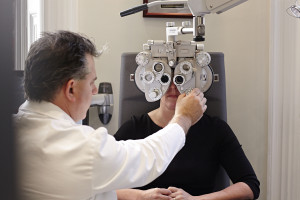Eye Health: European Coalition for Vision Request End To Neglect
Earlier this year, the European Coalition for Vision (ECV) released a press statement to call on European decision makers to include eye health and vision in their political agenda. The call follows an earlier event in which members of the ECV claimed that eye health has been neglected in the political arena for too long, and that there is far too much avoidable and preventable vision damage.
The ECV is an allegiance of members, including professional bodies and patient groups amongst others, who joined together in the fight toward better eye care and to help prevent avoidable visual impairment. They also raise the profile of social and economic issues that lead to the neglect of eye health. It is this drive that led them to release a manifesto asking the European Parliament to use its powers to improve the lives of those suffering from vision loss or impairment.
An “Invisible Epidemic”…
Bob Chappell, a Past President of the European Council of Optometry and Optics, explains the severity of the situation. “Europe is facing an invisible epidemic,” he argues. There are “an estimated 20.4 million people in the whole of Europe suffering from serious vision impairment – including 2.3 million who are blind.” He goes on to suggest that this number is set to rise, what with the ageing population and increasing cases of diseases such as diabetes that can cause vision loss. What is even more startling is that around two thirds of these cases could be prevented or treated but are not, and it’s this neglect that the ECV are set to fight.
A Problem Of Numbers
The ECV also drew attention to the lack of official data on eye health and vision loss, suggesting that without this, it would be difficult to develop adequate policies for the future. Until we have a clear idea of the true statistics, it would be difficult to put any plan for better eye care into place.
One thing is for sure though, greater focus is needed before we can eradicate the preventable vision loss that the ECV suggest is on the increase. And, as Professor Reinstein explains, one of the most important ways to prevent and treat eye disease is to have proper eye examinations. In addition to routine eye tests with an optician, everyone should have proper eye exams with an optometrist – at least once in their 20s, once in their 30s, and every 2 – 3 years after the age of 40.



